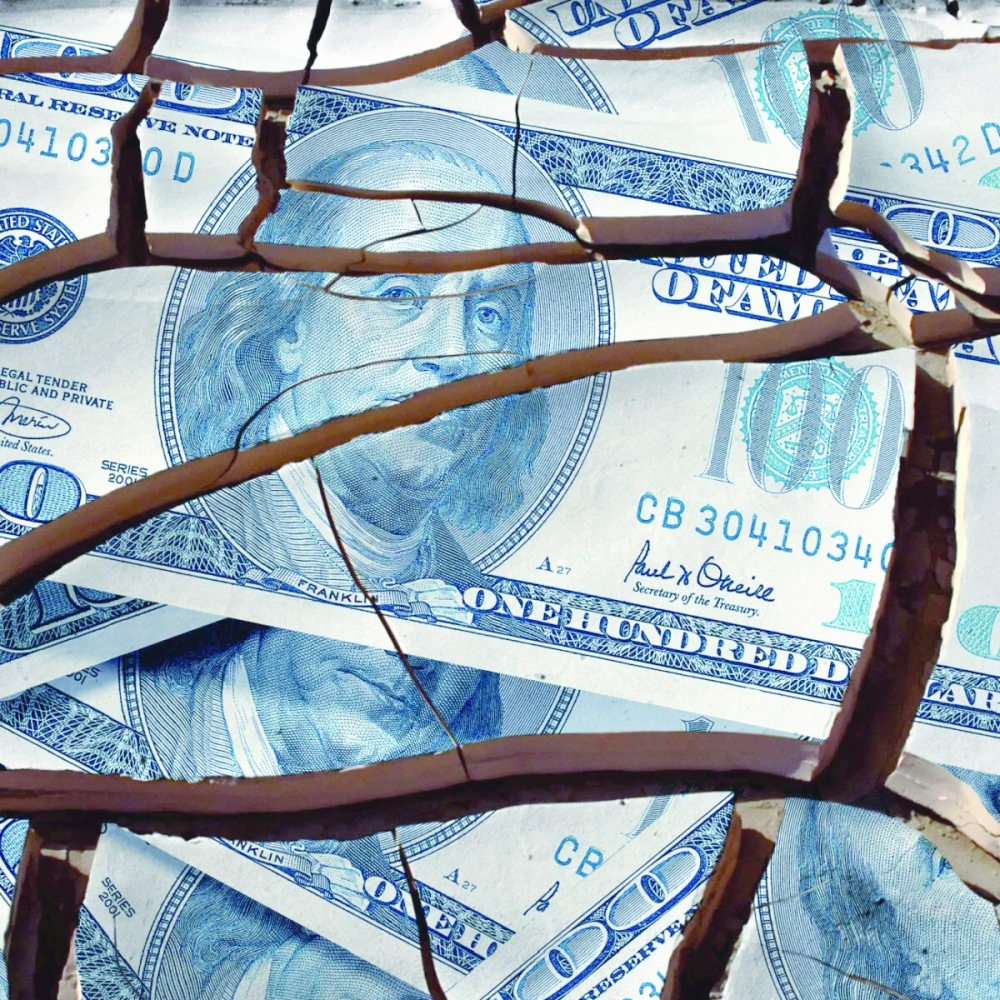

The US dollar is, in a real sense, the money of moneys — that is, in many ways it is to other national currencies what money in general is to other goods and assets. Most of us rarely engage in barter; we sell stuff for dollars, then use those dollars to buy other stuff. Similarly, a large share of international transactions, especially in financial markets, involves payments in dollars rather than in local currencies.
How much does this special role matter? It’s important for the global economy that there be some currency that is widely accepted the way the dollar is. It’s much less clear that America derives large advantages from the fact that our currency happens to be the chosen one. I’ve tried elsewhere to debunk some of the myths about the centrality of dollar dominance to US power. In general, one’s belief in the crucial importance of the dollar’s international role tends to be inversely proportional to how much you actually know about the subject.
Still, is the special role of the dollar declining? There’s a lot of buzz to that effect. Every hint that some international transactions might bypass the dollar, such as Saudi Arabia’s suggestion that it might accept Chinese yuan in payment for oil, receives tremendous hype. Elon Musk has endorsed the view that by “weaponising” the dollar against Russian President Vladimir Putin, America has guaranteed rapid de-dollarisation, because of course he has.
But how about bringing some actual data to bear? A new report from the Federal Reserve examines several measures of dollar dominance and finds that this dominance has “remained stable over the past 20 years” and that “diminution of the dollar’s status seems unlikely in the near term.” The Fed paper combines various measures into a single index of international currency usage — an index that basically shows no challenge at all to the dollar’s dominance.
Why would anyone think otherwise? A lot of discussion focuses on the dollar’s share of foreign exchange reserves — cash hoards that nations maintain to deal with various economic shocks. The dollar’s share of such reserves has indeed declined gradually over time, from 71% in 2000 to 58% in 2022. However, this decline mainly reflects diversification into smaller currencies such as the Canadian and Australian dollars, rather than a move to serious dollar rivals.
Furthermore, official reserve holdings are a small part of the dollar’s international dominance. Its role in private business — as the currency in which exports are invoiced, bank claims and liabilities are denominated and so on — is much more important. One of my favorite indicators is the share of dollars in foreign exchange transactions, which has been stable at around 88%.
What about the backlash against dollar “weaponisation”? As the paper points out, just about all prominent reserve currencies are issued by close US allies, who have also participated in sanctions against Russia. As a result, “geopolitical adversaries do not have many attractive alternatives to the US dollar.”
Why is the dollar so dominant, and why is this dominance so persistent? I like the example of foreign exchange transactions, which is relatively easy to explain. Imagine that you want to exchange two relatively small currencies — say, convert Bolivian bolivianos into Malaysian ringgit. Will you search for a counterparty who wants to make the reverse transaction? That might take a long time. Far simpler and cheaper to convert bolivianos into dollars, then use those dollars to buy ringgit.
And the dollar’s role in such transactions is self-reinforcing: The more transactions people do in dollars, the more liquid dollar markets become, adding to their advantage. Similar self-reinforcing effects promote and perpetuate the dollar’s dominance in other roles.
Massachusetts Institute of Technology economist Charles Kindleberger once wrote a great essay comparing the international role of the dollar with the international role of English. In their home countries, most people communicate in their native languages and do business in their national currencies. But when doing business abroad, they generally speak English and use dollars, because that’s what everyone else does.
This analogy may, among other things, throw some cold water on the notion that the Chinese yuan may soon pose a serious threat to the dollar. Yes, China is a bona fide economic superpower, which exports more than we do and whose gross domestic product is by some measures bigger than ours. But how soon do you imagine that Mandarin, which has relatively few second-language speakers compared with English, will become the dominant language of international commerce? Well, not many people outside China use its currency, so yuan internationalisation faces similar barriers.
And there are also some China-specific problems that inhibit its currency’s global role. Any suggestion that the yuan might soon become a major international currency runs up against the reality that China maintains capital controls: Money can’t be freely moved in or out of the country. Capital controls aren’t always a bad idea, but they’re a major barrier for a nation that wants to own a global currency: Who will want to hold lots of assets when they never know whether they’ll be able to withdraw them as needed?
And for that matter, while you might want to learn Mandarin to do business in China, how much business do you want to do in a country that seems increasingly willing to arrest foreigners on charges of espionage?
But back to the international role of the dollar. The greenback’s dominance won’t last forever, because nothing does. But the hype about de-dollarisation is much ado about almost nothing. For now, the dollar dominates because there just aren’t any good alternatives. — The New York Times
Paul Krugman, a New York Times opinion columnist, writes about macroeconomics, trade, health care, social policy and politics.
Oman Observer is now on the WhatsApp channel. Click here



